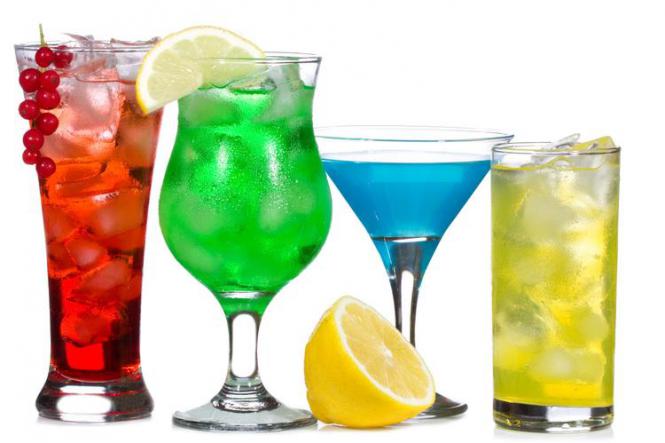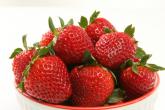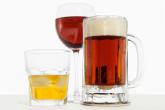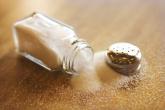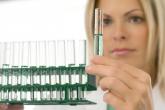Not only protein, fat and carbohydrates are a source of calories, but also drinks containing alcohol. Milliliter of pure ethyl alcohol is 7 calories, while gram of protein and carbohydrates is 4 calories, and fat contains 9 calories.
The alcohol is said to provide so-called "empty calories". The term "empty calories" refers to the fact that alcohol, in addition to calories, contains no other nutrients. Of course we do not drink pure alcohol. Usually this is a beer, wine, vodka or any alcohol-based drinks. That?s just calories, but as it turns out, the body is not really able to utilize energy from alcohol for some specific purposes. Not only can not use it for muscles and internal organs, but also turn them into fat effectively.
|
|
|
Is alcohol fattening?
The question is whether alcohol promotes weight gain? The answer is yes and no. From the perspective of the organism ethyl alcohol is a poison. The most toxic compound created during its decomposition is the acetaldehyde. It causes headaches, nausea and vomiting when we drink too much and is responsible for feeling so called hangover. So if alcohol is a poison the body is trying to eliminate it, which your liver is responsible for. It turns out that certain compounds in the body responsible for the neutralization of alcohol are also involved in the breakdown of fat. So there is no doubt that in the state of emergency of poisoning your body will not want to deal with the burning of fat, only the elimination of the poison. Body fat distribution is therefore put on hold. What's more, when accompanied by alcohol, fatty foods are not only blocked but also additionally deposed. So alcohol primarily associates eating food with a fat tissue and has little effect on weight gain itself.
Otherwise, most alcoholics would be obese, whereas the truth is opposite. And this creates a different mechanism. If drinked alcohol is accompanied by lack of food, it makes you slim and more precisely - destroys you. Alcohol destroys the mucous membrane of the gastrointestinal tract, liver and pancreatic cells, resulting in worsening of both the absorption of nutrients and their metabolism. The body, even if the gets a bit of food can not use it in full. In addition, the metabolism of alcohol requires a lot of involvement of different nutrients, resulting in further removal of them from the body. After a while it comes to the total devastation of the body. On top of, the alcoholic has less and less interest in food. The presence of alcohol in the blood cells increases significantly the demand for oxygen. With hypoxia, excess of circulating fatty acids is half-burned, resulting in the formation so called ketone compounds, which, inter alia, inhibit hunger. As you can see, alcohol may therefore act in two ways, as the determining factor on whether to gain weight from it or not, is determined mainly by the amount and composition of food associated with drinking. A few words about the so-called. 'beer muscle ". It occurs because of high glycemic index and glycemic load from the maltose - carbohydrate present in beer. A high index and glycemic load causes the appetite increases rapidly and then we often reach for most associated as an additive to beer calorie snacks - nuts, chips, bread sticks.
Calories in different alcohols
Distilled spirits
Brandy 30 ml - 65 kcal
Gin 20 ml - 60 kcal
Cognac (1 glass) 50 ml - 160 kcal
Rum (1 glass) 30 ml - 120 kcal
Whisky 30 ml - 65 kcal
Vodka (1 bottle) 50 ml - 110 kcal
Sweet Vodka (1 bottle) 50 ml - 130 kcal
Wines
White dry wine (1 glass) 120 ml - 80 kcal
White dry wine (1 bottle) 0,75 l - 500 kcal
The white semi-dry (1 glass) 120 ml - 90 kcal
The white semi-dry (1 bottle) 0,75 l - 560 kcal
White sweet (1 glass) 120 ml - 110 kcal
White sweet (1 bottle) 0,75 l - 700 kcal
Red dry wine (1 glass) 120 ml - 80 kcal
Red dry wine (1 bottle) 0,75 l - 500 kcal
Red semisweet (1 glass) 120 ml - 92 kcal
Red semisweet (1 bottle) 0,75 l - 575 kcal
Red Sweet (1 glass) 120 ml - 115 kcal
Red Sweet (1 bottle) 0,75 l - 718 kcal
Pink (1 glass) 120 ml - 85 kcal
Pink (bottle) 0,75 l - 531 kcal
Homemade, fruit (1 glass) 120 ml - 110 kcal
Domestic, fruit (1 bottle) 0,75 l - 700 kcal
Homemade, fruit (very sweet, 1 glass) 120 ml - 120 kcal
Domestic, fruit (1 bottle) 0.75 I - 750 kcal
Madera (1 glass) 120 ml - 118 kcal
Madera (1 bottle) 0,75 l - 718 kcal
Malaga (1 glass) 120 ml - 163 kcal
Malaga (1 bottle) 0,75 l - 938 kcal
Porto (1 glass) 50 ml - 83 kcal
Dry sherry (1 glass) 50 ml - 60 kcal
Sweet Sherry (1 glass) 50 ml - 71 kcal
Dry vermouth (1 glass) 120 ml - 114 kcal
Sweet vermouth (1 glass) 120 ml - 146 kcal
Liqueurs
Advocat 30 ml - 75 kcal
Eggnog (homemade) 30 ml - 82 kcal
Curacao (small cup) 20 ml - 84 kcal
Cumin 20 ml - 32 kcal
Nut 20 ml - 54 kcal
Herbal 20 ml - 40 kcal
Beers
Full of dark beer (1 bottle) 0,33 l - 250 kcal
Non-alcoholic beer (1 bottle) 0,33 l - 80 kcal
Guinness beer (1 bottle) 0,33 l - 216 kcal
Lager beer (1 bottle) 0,33 l - 230 kcal
Pilsner beer (1 bottle) 0,33 l - 144 kcal
Malt beer (1 bottle) 0,33 l - 152 kcal
Porter beer (1 bottle) 0,33 l - 300 kcal

